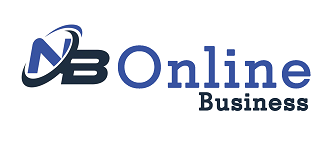Asset management has undergone significant transformations with the advent of blockchain technology. As financial markets become increasingly digitised, robust verification systems have never been more critical. Modern asset management demands transparency, security, and efficiency – elements blockchain verification delivers effectively.
The fundamental principle behind blockchain verification transforms how we approach asset management security. This distributed ledger technology creates an immutable record of all transactions, ensuring that every movement of assets is tracked and verified by multiple nodes in the network. When we examine the traditional verification methods, they often involve numerous intermediaries, time-consuming processes, and increased room for human error. By implementing blockchain verification, these limitations are effectively addressed through automated, transparent processes that maintain the highest levels of security.
How Verification Strengthens Asset Security
When managing digital assets, verification serves as the cornerstone of trust. Through sophisticated cryptographic algorithms, each transaction undergoes multiple layers of authentication. This process, including solutions like rexas, ensures that asset transfers remain secure and transparent throughout their lifecycle. The multi-layered verification approach significantly reduces the risk of unauthorised access and fraudulent activities, providing asset managers with robust security measures that protect their client’s investments.
The real-world impact on asset management
Smart contract integration Modern asset management platforms leverage smart contracts to automate verification processes. These self-executing contracts eliminate manual verification steps while maintaining the highest security standards. The automation of these processes not only reduces operational costs but also minimises the potential for human error in critical transactions. Smart contracts also enable asset managers to implement complex verification rules that automatically enforce regulatory compliance and investment parameters. The implementation of blockchain verification brings unprecedented levels of openness to asset management:
- Real-time tracking of asset movements becomes standard practice
- Detailed audit trails for compliance purposes provide comprehensive oversight
- Immutable transaction records ensure data integrity
- Reduced risk of fraudulent activities through transparent verification processes
These elements contribute to building a more trustworthy and efficient asset management ecosystem. Tracking and verifying transactions in real time gives asset managers better control over their portfolios while offering clients greater visibility into their investments.
Operational efficiency improvements
Implementing blockchain verification significantly reduces the time required for asset transfers and settlements. Now, What took days happens within minutes, thanks to automated verification protocols and distributed consensus mechanisms. This improved efficiency translates into:

- Better resource allocation – Asset managers can focus more on strategic decisions than administrative tasks. Automated verification processes free up valuable time and resources that can be utilised to analyse market trends and optimise investment strategies.
- Reduced costs – Operational costs decrease significantly by eliminating multiple intermediaries and automating verification processes.
Future implications for asset managers
As blockchain technology matures, its verification capabilities will become increasingly sophisticated. Asset managers who embrace these technological advancements position themselves to offer more secure, efficient, and transparent services to their clients. Looking ahead, we can expect to see:
- Integration of artificial intelligence with blockchain verification systems
- Enhanced cross-border verification capabilities
- Development of more sophisticated innovative contract protocols
- Increased standardisation of verification processes across the industry
The successful integration of blockchain verification in modern asset management represents more than just technological advancement with asset security and transparency. By leveraging these capabilities, asset managers can provide their clients with unprecedented security while streamlining operational processes. As the industry continues to evolve, the role of verification will only grow in importance, making it essential for asset managers to stay ahead of these technological developments.







